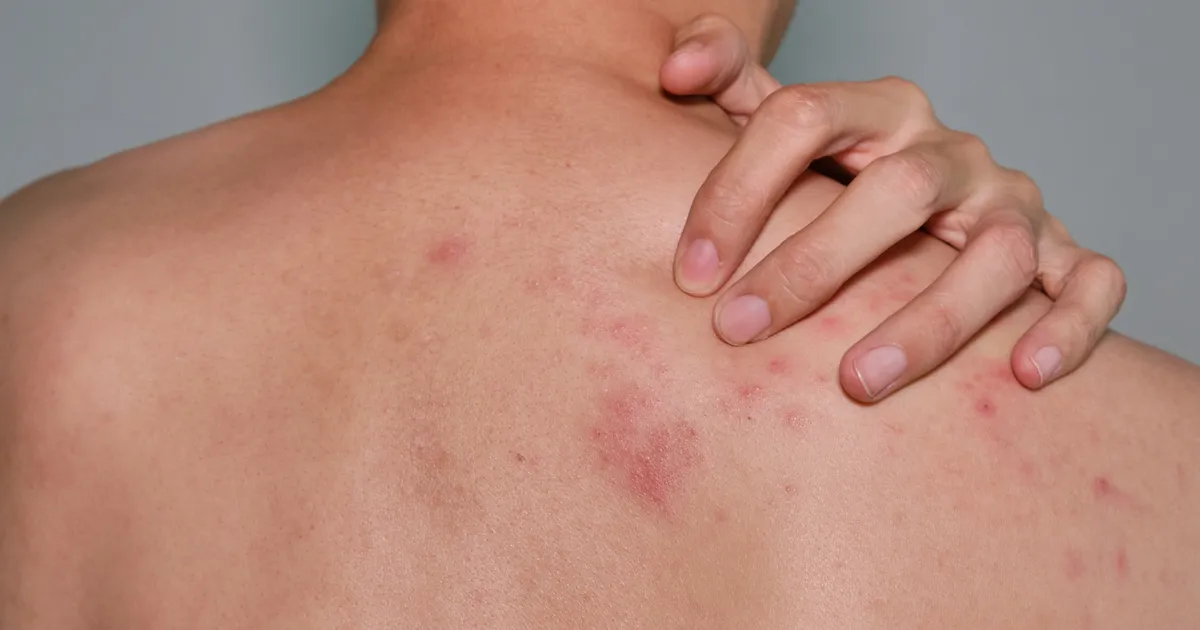Shingles, or herpes zoster, is an uncomfortable and often painful condition caused by the varicella-zoster virus – the same virus responsible for chickenpox. Often recognized by a characteristic band of blisters, shingles is not simply a temporary affliction; it can lead to long-term complications and risks that affect overall health. Fortunately, you can learn everything you need to know about shingles with a search online right now, which could help you manage the condition and prevent its recurrence.
 Shutterstock: Sakaj Pawasuttikul
Shutterstock: Sakaj PawasuttikulUnderstanding the Varicella-Zoster Virus
The varicella-zoster virus lies dormant in the nerve tissue of individuals who have had chickenpox. 1 Sometimes, the virus reactivates, resulting in shingles. While the exact cause of this reactivation is not entirely understood, it is believed to occur when the body’s immune system is weakened due to stress, aging, or medical conditions that suppress the immune response.
Beyond chickenpox and shingles, the varicella-zoster virus can also cause other, less known conditions. For instance, it can lead to a form of viral pneumonia in some immunocompromised individuals. This multifaceted behavior of the virus further highlights its capacity to compromise health in various ways.
Manifestation of Shingles
Shingles primarily appears as a painful, itchy rash, often accompanied by blisters. The rash usually develops on one side of the body, most commonly on the torso. Other symptoms can include fever, fatigue, and headache. These symptoms may persist for several weeks and cause significant discomfort.
In rare cases, shingles may not present with its typical rash and can be difficult to diagnose. This phenomenon, called zoster sine herpete, can often be misdiagnosed due to the absence of the tell-tale rash. Moreover, the shingles rash can also affect internal organs, including the lungs, gastrointestinal tract, and brain, leading to a myriad of complications.
Potential Complications and Risks
There are several potential complications associated with shingles, especially if your immune system is compromised in any way. Common complications that can arise include: 2
- Postherpetic neuralgia (PHN), a condition where pain from shingles continues long after the rash has disappeared
- Skin infections, if the blisters are not properly treated
- Vision loss, if the rash occurs around the eye
- Neurological problems, such as encephalitis or stroke, if the virus affects the brain or nerves
- Bacterial infections, if open blisters are severe enough
- Hearing loss or balance problems, if the virus affects certain nerves
Shingles and Immune Health
The relationship between shingles and immune health is significant. An outbreak of shingles often indicates a weakened immune system. Additionally, those with compromised immune health, such as individuals with HIV/AIDS or those undergoing treatments such as chemotherapy, are more prone to developing shingles.
Shingles may also be a warning sign of other underlying health conditions. Some studies suggest a higher incidence of shingles among individuals later diagnosed with cancer, particularly hematological malignancies.
Long-Term Effects of Shingles
The long-term effects of shingles can be substantial. Individuals who develop PHN may encounter the following long-term effects:
- Persistent pain that significantly affects their quality of life
- Depression or anxiety
- Vision loss
- Neurological issues, depending on the severity of the infection
- Dysgeusia, a condition that alters their perception of taste or smell
Preventing Shingles
Fortunately, shingles can be prevented through vaccination. 3 The shingles vaccine is recommended for adults over 50, including those who have already had shingles or do not recall having chickenpox. The vaccine can significantly reduce the risk of shingles and its associated complications. It’s also important to maintain a strong immune system through a healthy lifestyle, including regular exercise, a balanced diet, and adequate sleep.
While the shingles vaccine is vital, other preventive measures also exist. For instance, maintaining distance from individuals with active shingles or chickenpox can prevent the spread of the varicella-zoster virus. Moreover, individuals recovering from shingles should ensure they do not come into contact with those with weakened immune systems.
Managing Shingles
Once a shingles outbreak has occurred, early treatment can help to reduce the severity of the disease and the risk of complications. Antiviral drugs can be used to reduce the duration and severity of shingles if they are started early in the disease’s course. 4 Pain medication can also help manage the discomfort associated with shingles.
Management of shingles can extend beyond medical treatment. Practices such as wearing loose clothing to avoid irritating the rash, using cool compresses to soothe the skin, and reducing stress through mindfulness practices may alleviate some symptoms. Additionally, adequate rest and hydration can aid in the body’s healing process and potentially decrease the duration of an outbreak.
Don’t Take Risks With Shingles
Shingles is more than just a temporary ailment; it is a condition with potential long-term impacts on your health. Understanding the risks and complications associated with shingles, as well as the importance of prevention and management, is crucial.
By continuing to research this complex condition, you can help yourself or a loved one achieve a better quality of life. With the right knowledge, shingles can be effectively managed and its long-term effects minimized.


